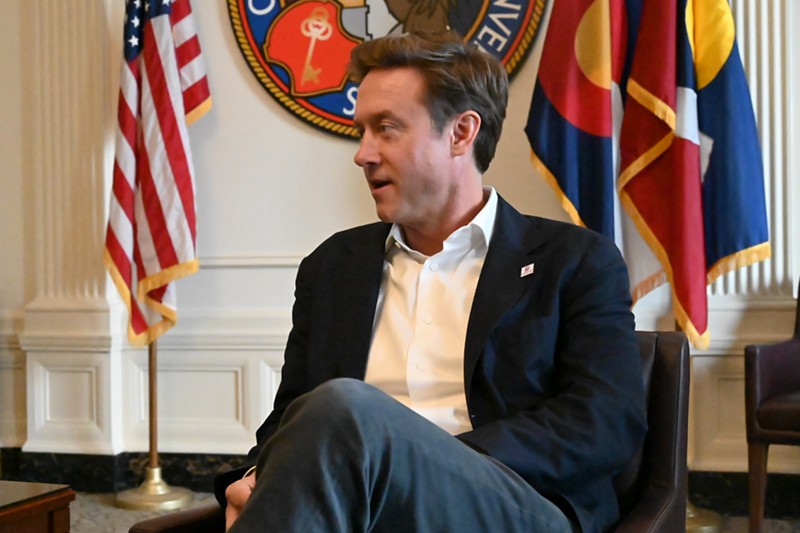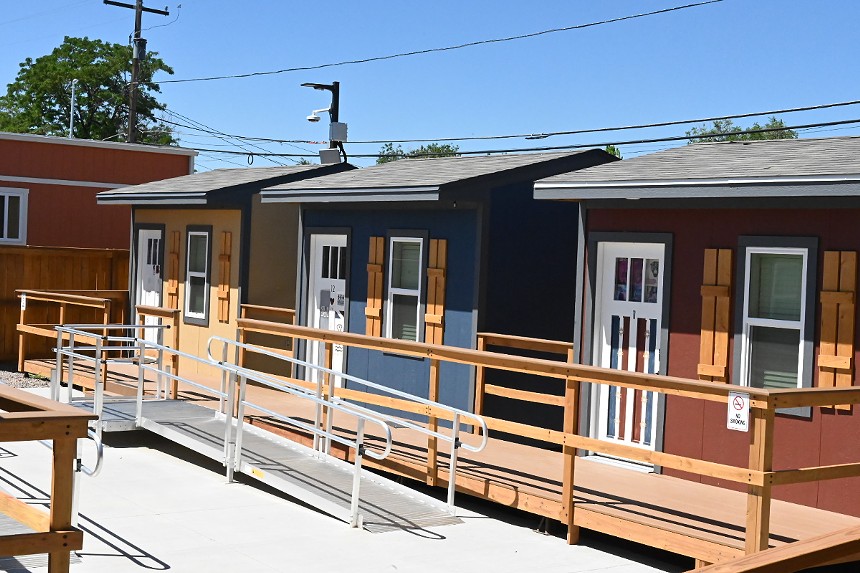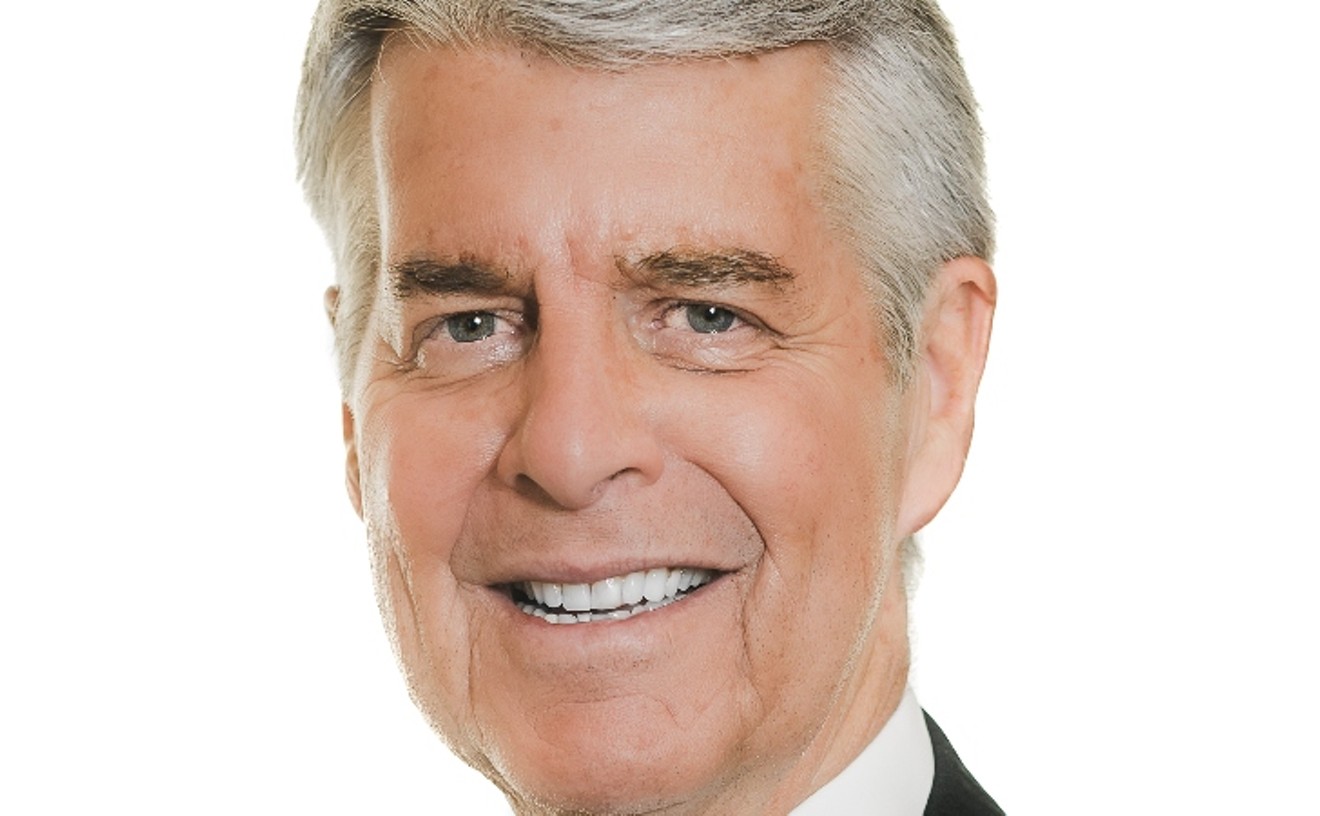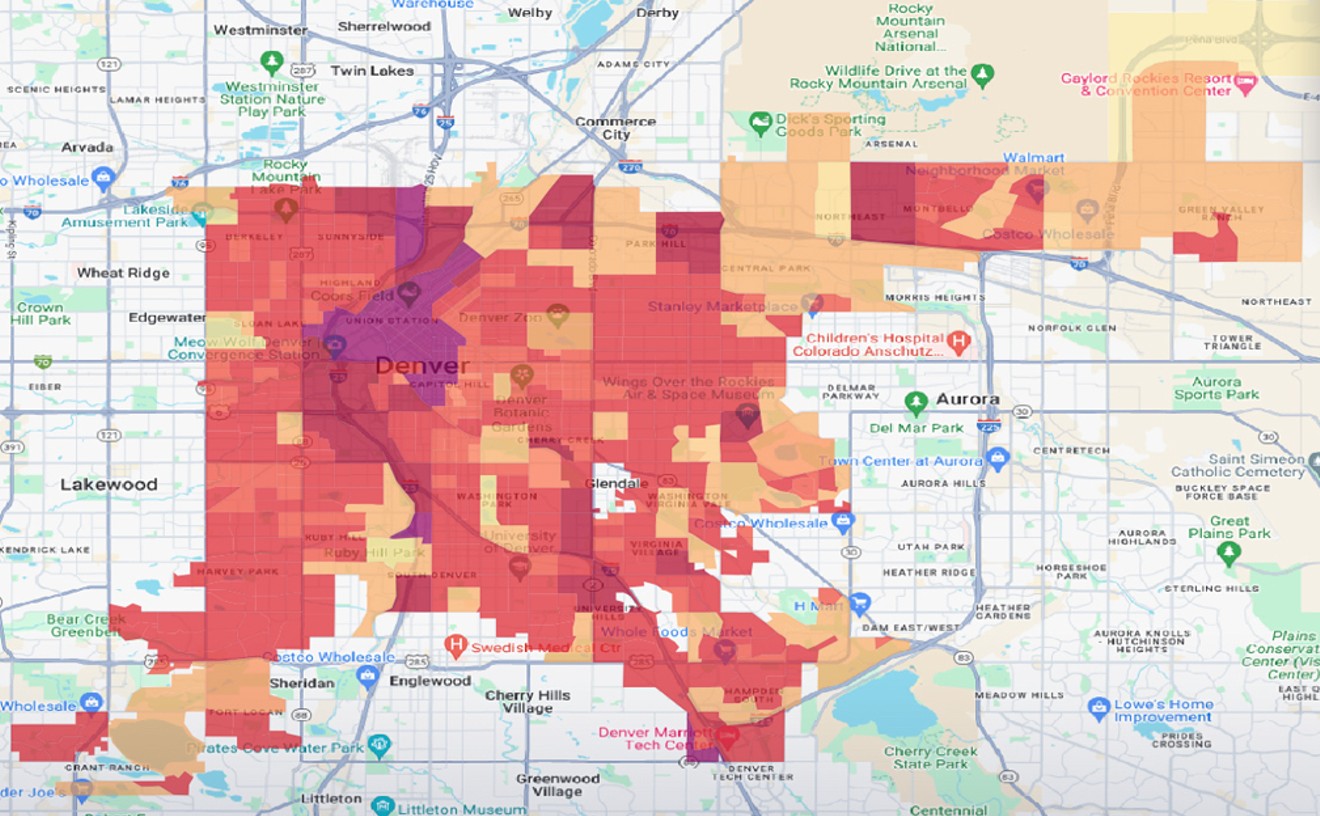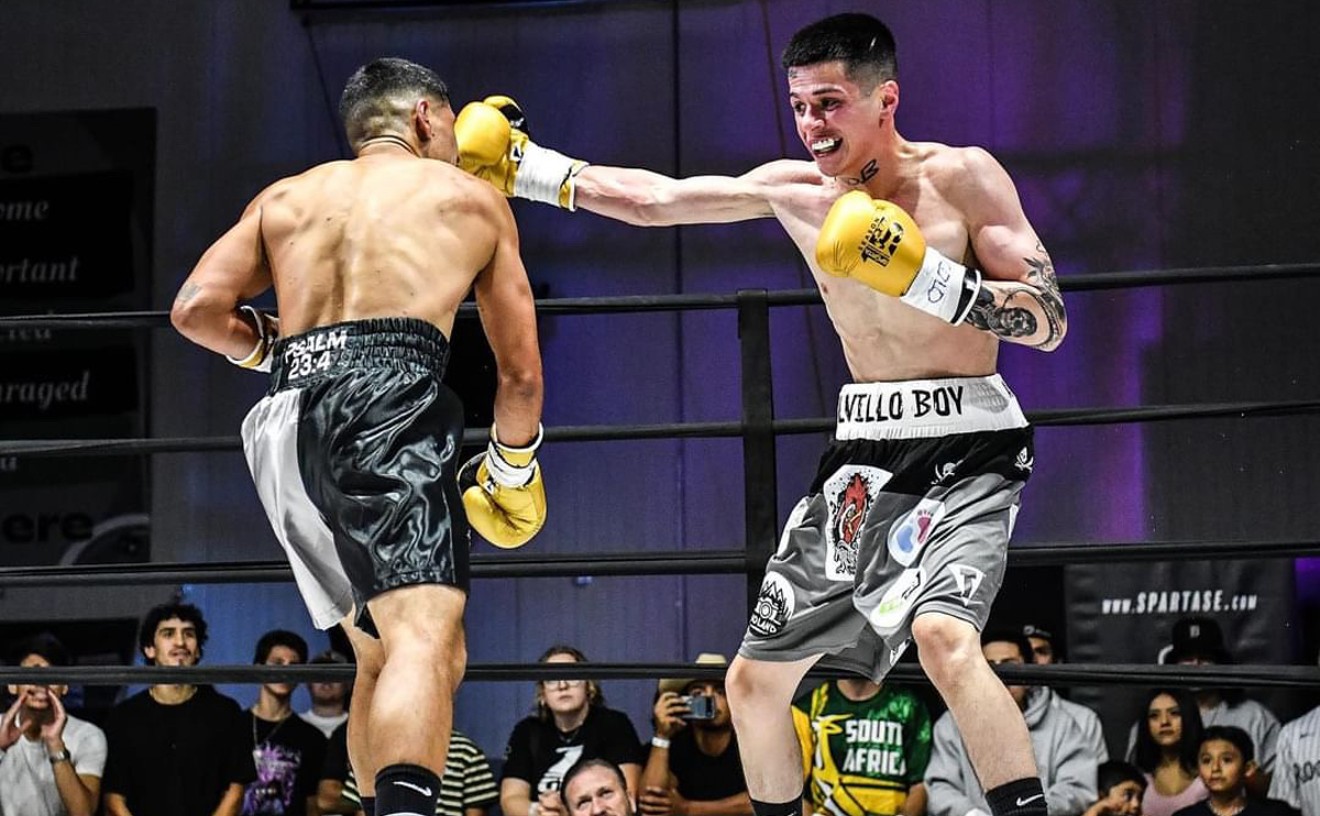Johnston is now focused on finding permanent housing for the 1,000 people currently living in hotels converted into temporary homeless shelters and 156 people living in shack-like units at the city's three micro-communities, both of which are city-funded projects.
Since his election campaign in 2023, Johnston has pledged to end homelessness in Denver. In his first six months in office, he declared victory for his House1000 plan to house 1,000 people by the end of 2023. Now, his All In Mile High plan aims to do the same by the end of 2024.
Under Johnston, the city has spent more than $42 million acquiring hotels and preparing micro-communities. However, now he plans to veer away from micro-communities and convert hotels from temporary shelters to permanent housing.
Shortly into his term, Johnston had a parallel crisis to deal with as waves of migrants, mostly from Venezuela, arrived in Denver throughout his first year in office. Similar to his approach to homelessness, the mayor responded by directing the city to rent motels and hotels for migrants while they applied for work permits. He also continued former mayor Michael Hancock's policy of paying their bus tickets to another city.
Paying for hotel rooms, bus tickets, food and other services for migrants has cost Denver more than $51 million during Johnston's first year in office. However, the number of migrants coming to Denver has dropped off dramatically since June because of new, stricter border policies and a reduction in shelter time in Denver, giving Johnston's administration some breathing room during the summer. The city is no longer using hotels to house migrants, pointing to a reduction in arrivals.
Johnston's most standout effort in his second year in office so far is his push to increase the city's sales tax by a half-cent to find affordable housing. If approved by Denver City Council for the November election, the "Affordable Denver" tax would raise $100 million a year for the city to build or buy cost-controlled rental units, including upwards of 5,000 in the first year. It's Johnston's way of bring the rent down in Denver by $500 to $1,000 a month, he says, but city council members called for more information about the initiative last week, pausing its progress.
Westword recently sat down with Johnston to see what else he has in mind for the year ahead and his thoughts on his first-year performance.
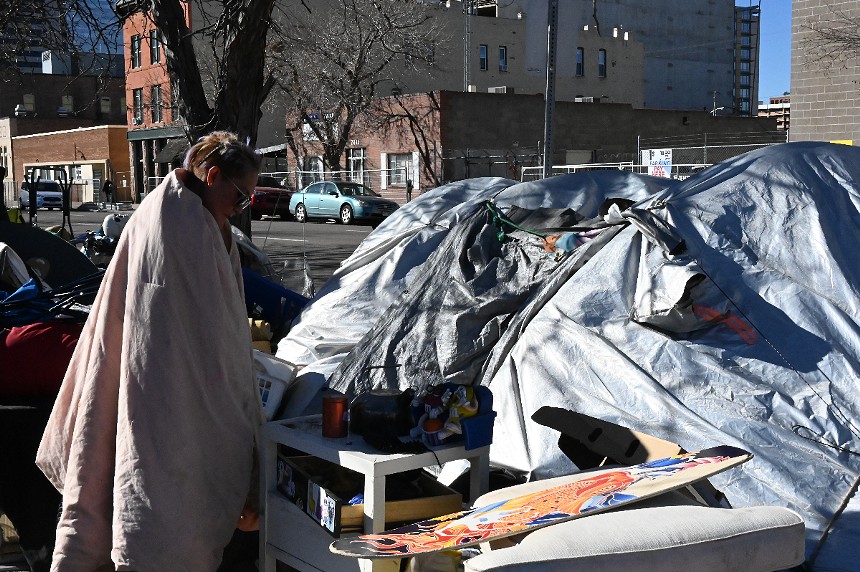
A homeless resident stands outside her tent at the corner of 21st and Curtis streets, just outside the U.S. Post Office.
Bennito L. Kelty
Mayor Mike Johnston: I'm very proud of our first year. I think we took on the hardest challenges that we knew were there, and we ran straight at the tough stuff.
We started, obviously, with homelessness, and we knew that was the biggest issue facing the city. I think people had given up thinking that it was fixable, and we really believe this was a solvable problem.
We're really proud of the results. I mean, now a year in, more than 1,600 people have been moved off the streets and into transitional housing, and there are 300 blocks of downtown where there's not a single tent and encampment.
Just look back to a year ago, when there were literally hospitals people couldn't get in and out of because there was a ring of encampments, or post offices that people couldn't get in and out of because they were surrounded by three or four blocks of encampments, people dying on the streets in record numbers, and folks that didn't feel safe to come downtown or bring their family downtown.
They go from that to not a single tent or encampment in all of downtown and 1,600 people in housing services. We're one of the fastest-moving cities to get that number of people into housing. It's just a transformational change.
Migrants was obviously not something we can control, but I think we found a way to make it work for us and for the newcomers. Amazing community partners stepped up. We welcomed 30,000 migrants just since we took the oath of office. As of today, we have them all in housing or shelter or on a path to work. We've managed to do it by dramatically cutting the costs we would have had to spend and not having to cut public services in an ongoing way or reduce the quality of what we offer to newcomers. We think we found a solution by staying at it that nobody else really did.
Micro-communities sounded like they were going to be the linchpin for House1000, and then toward December, the strategy shifted more toward hotels. Did you expect that to happen?
It's a good example of how we try to both build the best possible plan, listen to people's feedback and then implement the plan and learn as you go.
What we learned was the scale and cost to develop, acquire and build some of the tiny home sites started to get as expensive as hotel sites. They were only temporary, they have four-year zoning, and the ability with the hotel sites is we could then transition them into permanent housing.
If, three years from now, we don't need the DoubleTree because we ended unsheltered homelessness, we could turn those into 300 apartment units. We're fond of the benefits of the long-term options for hotels, plus the volume we could bring on and all the natural systems. All the electrical lines are already built in. The plumbing is already built and the foundation's already laid.Those are things we have to start from scratch on for tiny home sites.
We found the other tiny home sites do work better for some individuals who want a little more privacy, want to be in a smaller community, want not to be in the midst of larger populations. So we think both provide different benefits.
Is your administration spending a lot to stand up these hotels?It's a good example of how we try to both build the best possible plan, listen to people's feedback and then implement the plan and learn as you go.
What we learned was the scale and cost to develop, acquire and build some of the tiny home sites started to get as expensive as hotel sites. They were only temporary, they have four-year zoning, and the ability with the hotel sites is we could then transition them into permanent housing.
If, three years from now, we don't need the DoubleTree because we ended unsheltered homelessness, we could turn those into 300 apartment units. We're fond of the benefits of the long-term options for hotels, plus the volume we could bring on and all the natural systems. All the electrical lines are already built in. The plumbing is already built and the foundation's already laid.Those are things we have to start from scratch on for tiny home sites.
We found the other tiny home sites do work better for some individuals who want a little more privacy, want to be in a smaller community, want not to be in the midst of larger populations. So we think both provide different benefits.
We knew that in the first step, we had to acquire these sites and to acquire them for the first time, it was going to be expensive. But they were one-time costs: once we get these now, then we can use them for the next twenty years and move thousands of people off the streets each year through those sites.
The year-to-year operating cost is not going to be super expensive. In fact, what we know is that these reduce our total costs long-term, because when we have people in encampments, you have the cost of 911 calls, you have the cost of sweeps, you have jail time, you have people dying on the streets — all those very serious costs that come with the greater safety risks of being out in the street.
How sustainable is that model?
We think it's entirely sustainable. The biggest part of the challenge now is getting people from these transitional housing sites, from the "All In" sites, and out into permanent housing.
If we can move people at a six-month length of stay, then those 1,200 [city-owned hotel units for homelessness] could serve 2,400 people a year. If we get it down to three months, those hotel units could serve 4,800 people a year. It would save us needing to build 3,600 more units if we can just get better at the case management and the transition support.
Are you worried about a situation like we saw on Eighth Avenue and Navajo Street in April in La Alma, where an encampment grew pretty rapidly and you didn't have anywhere to put them?
As I said to our team, our goal is that never happens again. We want to do a couple of things: We want to make sure we have enough units that are always available to move people, and we want to make sure we don't let them grow so large that we're not able to house them.
So we do intervention earlier, we support people when they're still in very small encampments, and get them resolved before they grow too big. That was certainly a lesson learned.
Are any more micro-communities coming on?
We don't have any planned for right now. We're really focused on having the ones that are up and running succeed.
Some of the safe outdoor spaces that we have, we're going to upgrade to micro-communities. We're gonna replace what were tents with tiny homes to make those more stable, more permanent, more dignified.
But we're not looking right now to new micro-communities again. Last year was really the capital and infrastructure part of the project, which is find these sites, stand them up, get them up and running, and then get people moving through them. Now it's really focusing on the programmatic components of how we run really high-quality services at these sites to make the through-put even faster.
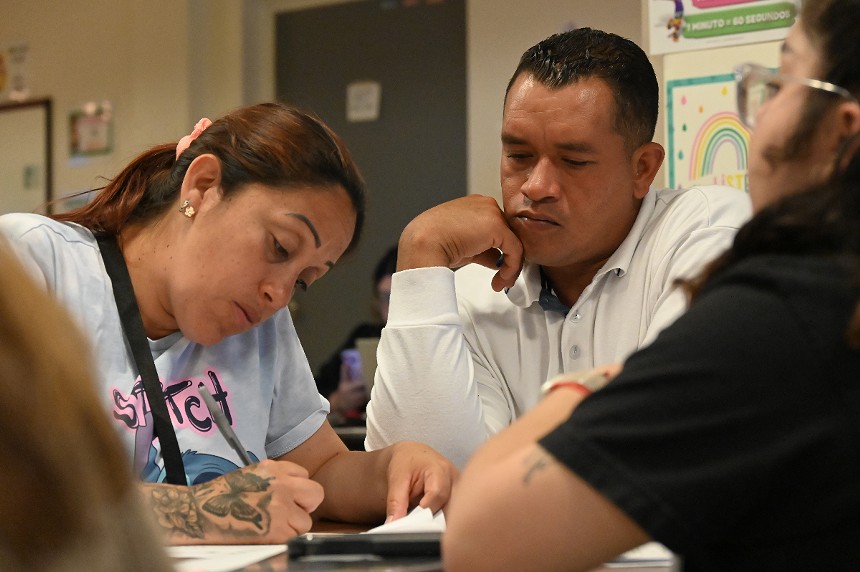
Rony Blanco and Yenire Cirilo sign the paperwork to join the Denver Asylum Seekers Program.
Bennito L. Kelty
We've really been focused on homelessness, migrants, on safety, and on economic revival and downtown. Those have been our big year-one efforts.
The next big one, not surprising, is around affordability citywide. This is really great that we've gotten folks off the streets and into housing, but we've got servers working in downtown Denver tonight — and teachers and nurses — who are not able to afford to live in the city right now.
You lose the heart of the city if you can't sustain the people that carry the city. For us, the big focus right now will be on that effort on affordability and trying to get these 4,000 or 5,000 units a year [if the Affordable Denver tax passes] we need to say we're not going to become a San Francisco or a Boston or an Austin, where things get so expensive that no one with a regular job can afford to live in the city anymore.
That's our real obsession right now. We have lots more to do on safety. We're really happy with the progress we have, like a 30 percent drop in auto theft this year. We have about a 27 percent drop already in gun-related violent crimes.
And then we're really going to double down on the revitalization of downtown, knowing it's the biggest economic driver for the region. We want to make it a place where we have affordable housing, where we have parks, where we have public spaces you can activate, play in, where we have great restaurants, where we've got an active and vibrant 16th Street Mall. Those are all going to be the key to that next stage of economic recovery.
Are there any goals from your first year that you didn't meet?
We have these goals — 3,000 affordable units, drop violent crime by 20 percent, reduce permitting time — and we think we're on a path to be able to hit all those in ’24. They're all difficult, so I'm sure we'll miss at some of them.
But we know for the rest of 2024 and going forward, there's going to be a deep focus on a vibrant Denver, an affordable Denver and a safe Denver. Those don't change.
There are a number of other things that are going to be top priorities for us, too. We want to focus on climate, we want to focus on child care, we want to focus on transit. There are other things that are going to be critically important that haven't been on the year-one agenda.
What do you think about a Denver City Council committee's decision to delay the Affordable Denver ballot issue on July 24?
We're not worried about it at all. We're working really closely with council and sponsors. We know this is an important, high-impact measure, and they want more time to ask some more questions and get some more answers, and we're totally fine with that. We're actually excited for a chance to get another week of work on it.
On the migrant crisis, are you worried about that issue maybe flaring up again?
It's sort of like the homeless approach. We built an infrastructure this year to be able to meet the needs that existed. I think we've spent this year building a series of responses on immigration that work.
Now, we have a path to serve the folks that are just plain asylum seekers that didn't have any other path. We've built an option for any scenario — but we don't want to be in a spot where we're at war with our own federal government.
I had forgotten — or maybe repressed it — that in 2017, after Trump took the oath of office, he wrote an executive order saying he would deny every city any federal grant dollars if they participated in a sanctuary status. I mean, it's not just like you can't get immigration grants. It means you couldn't get highway grants. It would have been a massive attempt to pick battle with cities around the country. We don't want to be in that kind of battle.
Have you ever thought about being president yourself?
No, I'm very proud to run the City of Denver.

